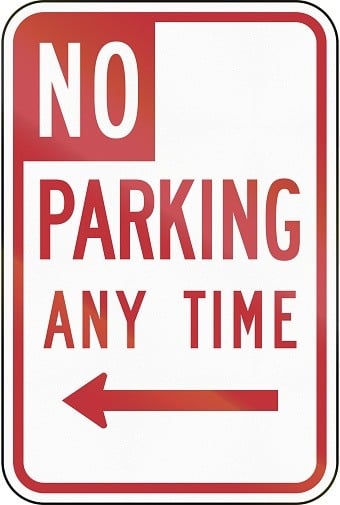 It's sometimes challenging to discuss and answer questions about parking within your homeowners association. While the rules regarding parking in each association are different here are some tips on how to answer common questions.
It's sometimes challenging to discuss and answer questions about parking within your homeowners association. While the rules regarding parking in each association are different here are some tips on how to answer common questions.
1. Why don’t we have enough parking?
Developers want to build the most homes possible to make the most money, so they often allot the fewest parking spaces required by law. Unfortunately, that leaves the association to deal with the shortage.
2. Why can’t we park on the street?
Your association’s roads are subject to local regulations that specify the space needed for access by emergency vehicles. When cars are parked on the street, there isn’t enough clearance for fire trucks to maneuver.
3. Why do we have to park our SUVs and trucks out of sight?
Your governing documents were created by people who were unable to anticipate today’s lifestyles. Who knew 30 years ago that SUVs would replace station wagons as the standard family vehicle and trucks would become passenger oriented and even luxurious? Until your documents are amended, remind homeowners that you are obligated to abide by this requirement.
4. Why do I have to register my car with the homeowners association?
The association’s registration system allows the manager to match vehicles with residents, in case you need to be contacted in an emergency. It also allows the association to identify nonresidents who are parking in your spaces. Be sure your parking pass is clearly visible at all times.
5. It seems the parking lot loses another space to handicapped parking every day. Why so many?
It may look like a disproportionate number of spaces are reserved for handicapped parking, but for each space there is a resident in need. The Fair Housing Amendments Act makes it unlawful to “discriminate against any person in the terms, conditions, or privileges of sale or rental of a dwelling, or in the provision of services or facilities in connection with such dwelling, because of a handicap of that person.” The “provision of services or facilities” includes providing reserved parking. When a resident requests a handicapped parking space, the association makes every effort to reserve one. Not only does federal and state law require it, but it’s also the right thing to do.
6. What gives the association the right to tell me where and how to park?
When you purchased your home, you entered into a contractual agreement with the homeowners association to abide by its covenants. Those covenants include bylaws that empower the board to adopt and enforce rules they believe are necessary for everyone’s good. The parking policy explains the parking rules and specifies procedures for enforcing them; not only is the board allowed to develop the policy, it’s legally obligated to do so.
7. Why don’t we just assign reserved parking?
Parking spaces are a type of property called common elements. That means all spaces are owned commonly by everyone, and everyone has the right to use them. Another type of property is called limited common elements. Like parking spaces, limited common elements are owned by everyone, but not everyone can use them. They are limited to one owner. Patios and balconies are examples of limited common elements.
By assigning reserved parking, you would effectively change the property status from common element to limited common element, which may go against the governing documents and property rights. Before assigning reserved parking, you’d have to amend your governing documents. This process is complex, expensive, lengthy, and requires approval by all members.
8. Why can’t I use my parking pass for an inoperable vehicle?
Parking rules disallow inoperable vehicles for the simple purpose of keeping the community looking nice. Even covered vehicles give the appearance of neglect.
9. Why was I cited for a vehicle that complies with all the association’s parking rules?
Sometimes the homeowners association tickets vehicles considered a nuisance. These are vehicles that consistently leak oil on the common areas, emit excessive exhaust or gas fumes, are excessively noisy or are otherwise inconsiderate of others. These situations result when your vehicle is in poor repair.
10. Why is the visitor parking area always full? It’s frustrating for my guests.
The guest parking area often also serves as overflow parking for the residents. It’s an inconvenience for your guests, but this arrangement guarantees that you always have a parking space for yourself.
In addition to providing answers to owner questions about parking in your community, the HOA board should encourage owners to read the Rules and Regulations and CC&R’s on an annual basis so that they can familiarize themselves and help to support you instead of question you in the methods of your homeowners association community.

.jpg)








